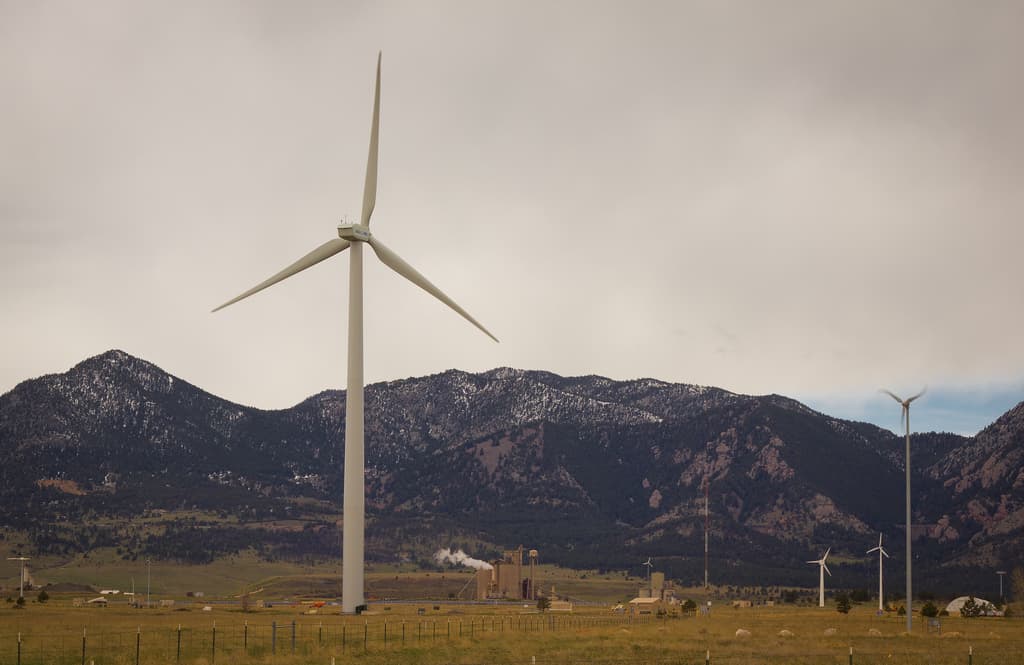
When the Supreme Court put President Barack Obama's Clean Power Plan on hold, Colorado Gov. John Hickenlooper wanted to press ahead with a state plan with similar goals: a 25 percent reduction in carbon dioxide emissions by 2025. He's even considered an executive order to push through reductions in greenhouse gas emissions if he can't get cooperation from the legislature.
Now Donald Trump has been elected president. He opposes the Clean Power Plan, has called global warming a "Chinese hoax" (he later said it was a joke) and has tapped a climate change skeptic to lead the transition at the Environmental Protection Agency.
What does that mean for Colorado?
The short and honest answer is that we don't know. I asked the governor's office if he was still planning to go ahead with a state version of the Clean Power Plan, and spokeswoman Kathy Green said she would have updates "in the coming months."
(It's worth remembering that just a few short weeks ago, environmental groups were calling on a future President Hillary Clinton not to nominate Hickenlooper for Interior Secretary because he's perceived as too cozy with oil and gas interests. Trump's camp has floated former Alaska Gov. Sarah Palin for this role.)
I also reached out to Xcel Energy, the state's largest utility, to see how the possibility of a new approach to climate change concerns at the federal level might affect the adoption of renewable energy.
In recent years, Xcel has entered into contracts for wind and solar solely on a cost basis -- that is, it was cheaper than other options when they went looking for new power on the open market -- and not to meet clean energy requirements. Still, it can take some time to develop a new solar or wind farm, and getting set up now would put Xcel in a better position to comply with future federal regulations.
How would a new approach at the federal level change the cost-benefit analysis for Xcel?
“Regardless of the outcome of the election, Xcel Energy will continue pursuing energy and environmental strategies that appeal to policymakers across the political spectrum, because we are focused on renewable and other infrastructure projects that will reduce carbon dioxide emissions without increasing prices or sacrificing reliability," Frank Prager, Xcel Energy vice president for policy and federal affairs, said in a prepared statement. "We look forward to working with the new administration, policymakers at all levels of government and other stakeholders to develop and implement energy policies that benefit our customers, our business and our communities.”
At the national and international levels, Trump has said he would take the United States out of the Paris climate agreement. The U.S.'s share of the Paris agreement's emissions reductions amounts to 20 percent of the worldwide total. And Trump has said he would promote domestic coal, oil and gas development, potentially increasing emissions faster than would otherwise occur.
Colorado's coal industry has largely collapsed, devastating small communities that relied on the jobs they provided. Two coal-fired power plants on the Western Slope are slated for closure to comply with state and federal clean air plans.
It's not totally clear what policy steps Trump would take to increase development of fossil fuels. He's said he'll reduce EPA regulations and open public lands to more drilling, while still protecting air and water quality. As High Country News reported back in June, Trump has said he will be a friend both to coal and natural gas, but one of the reasons coal is having a hard time is competition from cleaner-burning, less expensive natural gas. You can't always be a friend to both.
But when it comes to state-level policy, Colorado would retain a fair amount of control, said Erin Overturf, a senior staff attorney at Western Resource Advocates.
Colorado was the first state to adopt a renewable energy standard by voter referendum back in 2004. That standard has been amended several times and currently requires investor-owned utilities to generate 30 percent of their power from renewable sources by 2020.
"Energy regulation has really always been within the province of the states, and we know from our history that the majority of Coloradans support renewable energy," Overturf said. "I really think that whatever is going on federally, the state is really what is most important. There is every reason to expect the progress we've seen already will continue."
Of course, some of that depends on what happens politically in Colorado. Republicans used the budget process to try to block Hickenlooper's emissions-cutting plans this year, and with the state legislature still divided, the issue could come up again this year.
And environmentalists haven't always seen Hickenlooper's administration as a friend, particularly when it comes to fracking. He's opposed -- successfully -- efforts to give local communities more power to regulate oil and gas drilling, insisting that is the purview of the state and protecting an important part of the state's economy.











